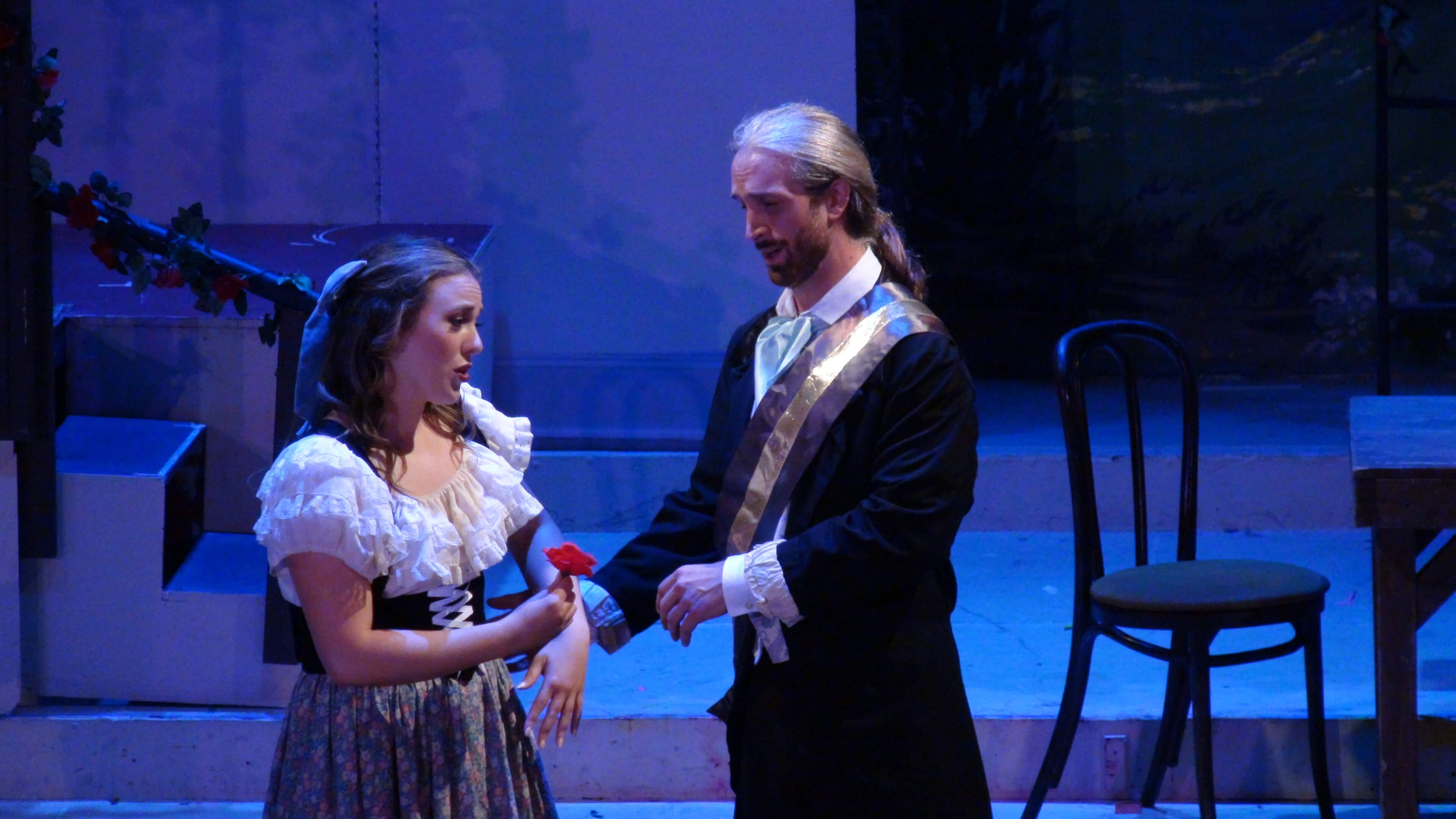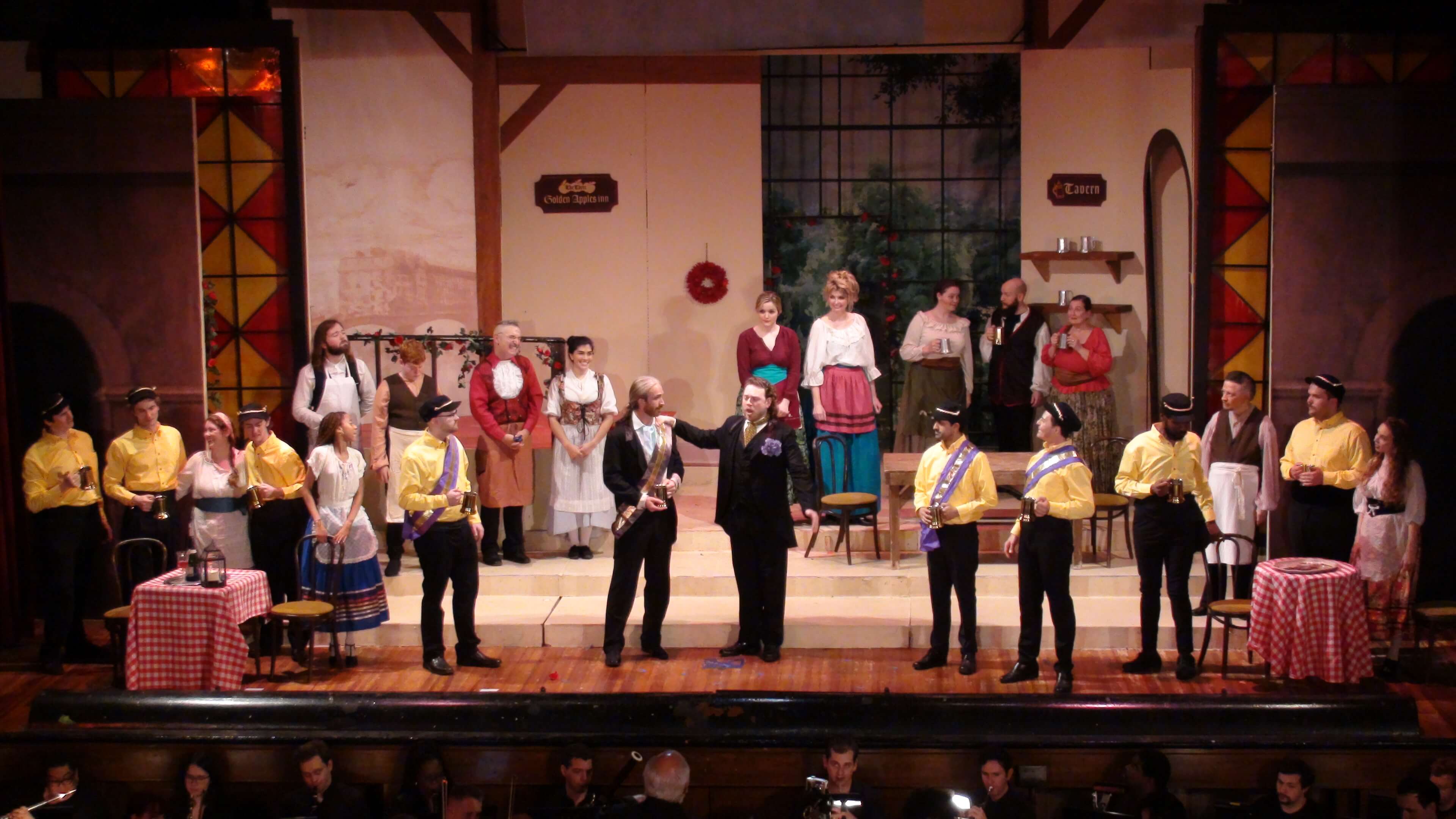Brooklyn’s Regina Opera, known in recent years for some heavy lifting in productions such as Verdi’s Il Trovatore, and dramatic turns such as Puccini’s Il Tabarro, has ventured into the light side with their production of Sigmund Romberg’s The Student Prince. Romberg was a prolific tunesmith in the early days of Broadway, but he is best known for the three operettas he composed in the 1920’s – The Student Prince, The Desert Song and New Moon. The Student Prince was the first and most well-known of the three and it continues to occasionally find its way into the repertory of opera companies, mostly due to its “hummably” memorable songs. There isn’t one melody from the show that will not get stuck in your head.
Regina Opera just closed their 53rd season with The Student Prince, which was one of four operas never performed before by the company. While all four choices were once very popular, their current seldom-seen status was a treat for all of the creatives involved and the audiences as well. The Student Prince was one of three operas presented this year in English. (Their excellent productions of Menotti’s double-bill of The Telephone and The Medium being the other two.) Despite the lingua franca, Regina Opera continues to use a first-rate supertitle system so that the audience doesn’t miss a word. In any situation involving great vocalists – whether it be concert, opera or musical – sometimes singers must emphasize certain elongated vowels in order to hit certain notes, and the result can be baffling without supertitles.
The plot of Romberg’s operetta is pure fluff – a young prince goes off to study at University and falls in love with a lowly peasant serving the students steins of beer. His grandfather, the current King, dies before he can graduate and now, promoted to king, he must marry someone of aristocratic standing and abandon his beloved waitress. It’s almost the kind of thing Gilbert & Sullivan spoofed in the previous century, but the heart-felt love songs and sad, realistic ending sell the story to just about everyone who isn’t deeply cynical.
Romberg, who also wrote beautiful film scores, gives the orchestra a great deal to feast upon. Led by the great Gregory Ortega, who conducts at Regina Opera frequently, the audience was treated to two mini-concerts – first the joyous overture which featured every melody from the show, and secondly, the intermezzo before the third act. Regina Opera can pride itself on its reliably top-shelf musicians in all its productions – and where else does a small theatre invest in a full 30-piece orchestra (and one that good?)
Romberg never met a reprise he didn’t like, so luckily Regina Opera had a men’s chorus par excellence (who are given most of the reprises.) Whether they were on stage or off, the audience couldn’t wait to hear the mighty group, continually catapulted by the soaring high notes of tenor Jax Hassler.
This reviewer looks forward to Regina Opera’s Season 54. Note: the company also offers occasional concerts. More information at www.ReginaOpera.org.











